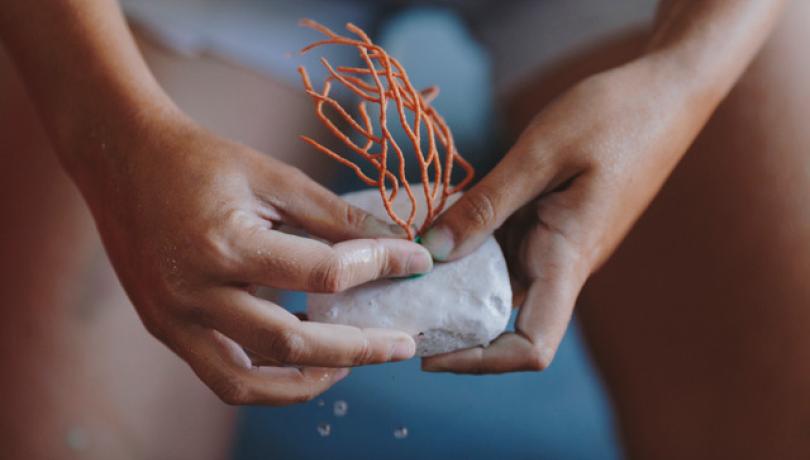The project aims to strengthen collaboration between the scientific, fishing, and social sectors and includes a strong social component led by the AMICOS Association.

The Institut de Ciències del Mar (ICM-CSIC) leads the CABALGA project, a pioneering initiative aimed at the restoration and conservation of benthic communities in protected marine areas of the Mediterranean and the Galician Atlantic, mitigating the effects of human activities and climate change on these key ecosystems. The project is carried out together with the Galician association AMICOS and is developed in collaboration with the Biodiversity Foundation of the Ministerio para la Transición Ecológica y el Reto Demográfico, through the Pleamar Program, and is co-financed by the European Union through the FEMPA (Fund European Maritime, Fisheries and Aquaculture).
Specifically, CABALGA seeks to promote close collaboration between the scientific, fishing, and social sectors, working together to protect and restore marine biodiversity. One of the initiative’s main goals is to mitigate artisanal fishing and other human activities' impact on marine ecosystems, particularly in protected areas. To achieve this, restoration techniques will be implemented, such as reintroducing key species to balance these habitats, like gorgonians, which act as underwater forests and provide shelter for countless species.
Additionally, CABALGA includes a comprehensive monitoring plan to track the restored species in their natural habitats, assess their progress, and contribute to the long-term conservation of marine ecosystems. The project also strongly emphasizes social awareness, involving the community in the importance of conserving marine biodiversity and ecosystem restoration, especially in protected marine areas.
ICM-CSIC researcher Stefano Ambroso highlights the significance of this collaborative and multidisciplinary approach:
"The CABALGA project is a unique opportunity to promote the recovery of marine ecosystems that are severely affected by human activities. We want to demonstrate that biodiversity restoration is possible with collaboration between science, the fishing sector, and civil society. Through innovative techniques like the 'Badminton Methodology', we hope to bring life back to these key ecosystems and ensure their function for future generations."
Badminton Methodology
The "Badminton Methodology" involves returning gorgonians, which have been accidentally caught during the trammel fishing season (from April to August), to their natural habitat. The gorgonians are attached to natural stones, which, when dropped from a boat, allow the colonies to land in an upright position, aiding their reintegration into the ecosystem. The species to be restored in this project include Eunicella singularis, Eunicella cavolinii, Leptogorgia sarmentosa, Swiftia pallida, and Paramuricea clavata.
CABALGA also addresses the urgent need to mitigate degradation caused by anthropogenic impacts, such as fishing and the use of anchors in vulnerable marine ecosystems.
“These ecosystems, which host corals and forests of Posidonia oceanica and Laminaria, are crucial for the shelter, feeding, and breeding of commercially important species. However, human activities are compromising their viability and reducing associated fish stocks,” says Blanca Figuerola, the project’s principal investigator.
Finally, the project includes a strong social component, led by the AMICOS Association, which works for the real inclusion and participation of people with intellectual disabilities in all areas of society. In this project, people with intellectual disabilities will play an active role in the restoration of marine ecosystems, giving them a voice and empowering them with a dual objective: on the one hand, to promote values such as ecosystem conservation and sustainability, and on the other, to showcase the skills of people with intellectual disabilities.
CABALGA’s restoration efforts will be carried out in 2025 in three protected marine areas: Cap de Creus Natural Park in Catalonia, Ses Salines d'Eivissa i Formentera Natural Park in the Balearic Islands, and the Atlantic Islands of Galicia National Park.